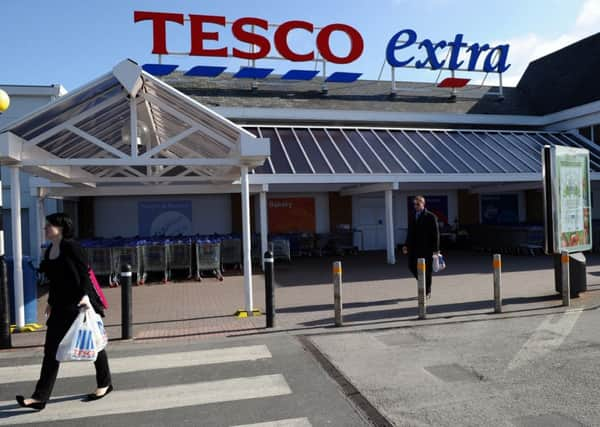Comment: Tesco strategy undone by the timing


You know the drill. Too much foreign expansion. Too much investment. Caught napping by those pesky German discounters Lidl and Aldi in a period of austerity. No wonder Tesco’s shares dipped to an 11-year low yesterday as the retailing Titanic slashed its half-year dividend by 75 per cent. Cue commiserations for new boss Dave Lewis, who starts work on Monday.
That’s one narrative. But why pick on Tesco? Iconic French brand Carrefour – the world’s second-largest retailer after Wal-Mart – followed exactly the same strategy and for the same logical reasons. It made perfect sense to expand into the growing Asian consumer markets as the West entered a downturn. It made perfect sense to try and keep premium customers whilst expanding cheaper lines in volume – market segmentation is as old as the hills. And if you have investment clout, why not use it against the opposition? Leahy’s original plan was derailed by circumstances but it wasn’t daft.
Advertisement
Hide AdAdvertisement
Hide AdCarrefour hit exactly the same commercial turbulence as Tesco. Ditto Metro in Germany. The European debt crisis ravaged domestic sales and international expansion ran into trouble from adverse currency movements. No surprise then that Carrefour followed Tesco and hired a tough new chief executive, Georges Plassat.
Plassat has done the obvious but with greater alacrity than Clarke. He slashed Carrefour’s bloated marketing budget and exited foreign markets. The dividend was scrapped and a ruthless cost-cutting programme initiated. Sales have begun to recover and Carrefour posted a 6.7 per cent rise in operating profits in the first quarter. Result: the share price has nearly doubled from its 2012 low. Here’s the killer: having won a breathing space, Plassat is using Carrefour’s massive financial strength to launch a price war against the invading German discounters. He could win.
The lesson is that we should not write off Tesco. It took Plassat only 18 months to get results. If Lewis can replicate that, investors might think the dividend hiatus is worth it.
Flint’s priorities are perhaps a little odd
CHIEF among the business luminaries who signed the Better Together letter to The Scotsman advising against independence was Douglas Flint, chairman of the HSBC banking empire.
An accountant trained at Glasgow University, Flint is probably the highest-ranking Scot in the global business establishment. But asia-focused HSBC has only a handful of branches in Scotland. Why is its chairman preoccupied with saving the Union? So concerned that he has met David Cameron on several occasions recently.
It’s not as if HSBC lacks problems. Profits have slumped by a fifth and disgruntled shareholders compelled Flint to accept a smaller bonus. Two years ago HSBC was fined £1.2 billion by the US for laundering funds for the main Mexican drug cartels.
Recently a tetchy Flint blamed excessive public scrutiny and fear of media criticism for the bank’s woes. Perhaps he found time to press his concerns with Cameron while discussing the state of the Union?